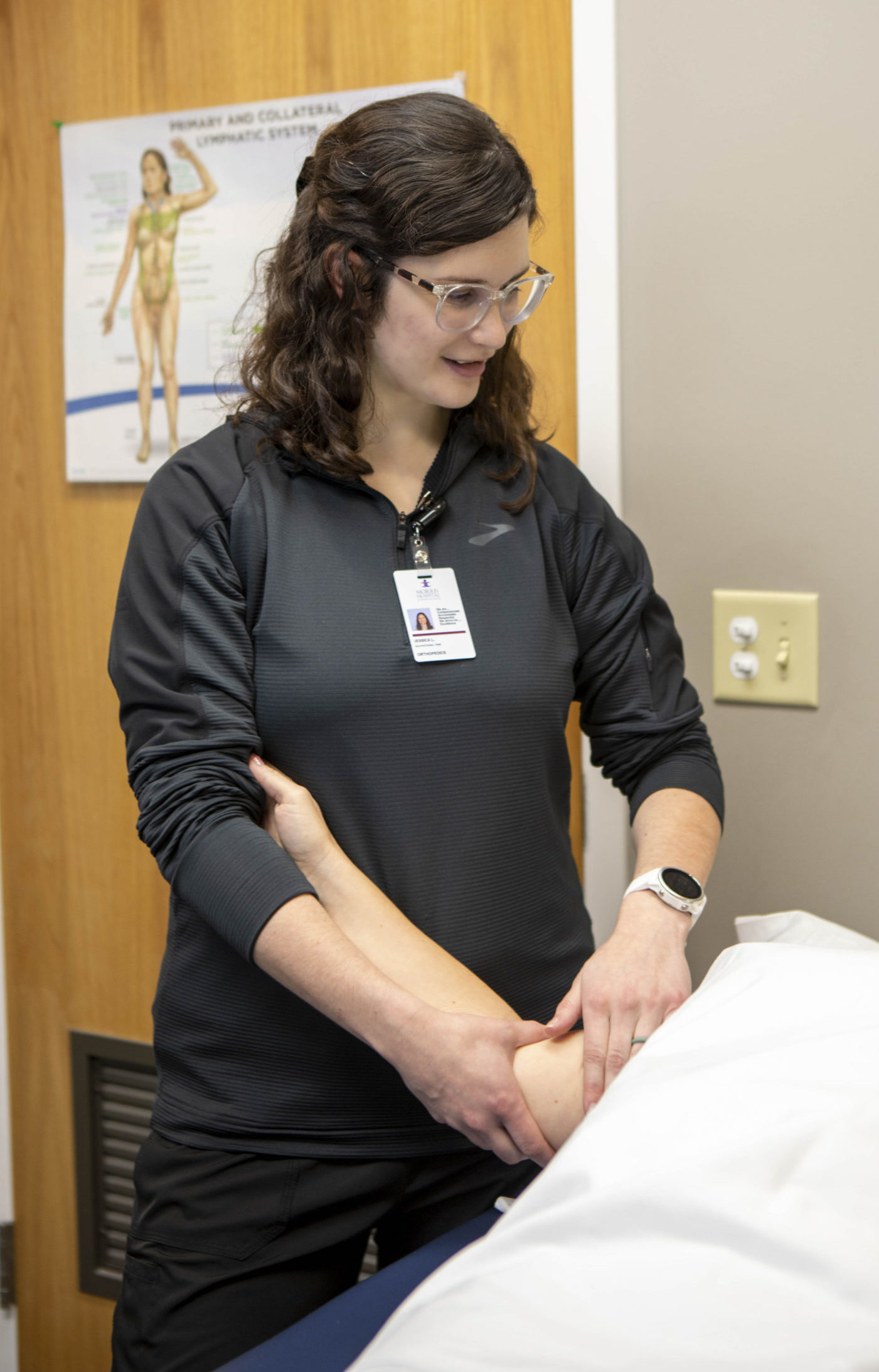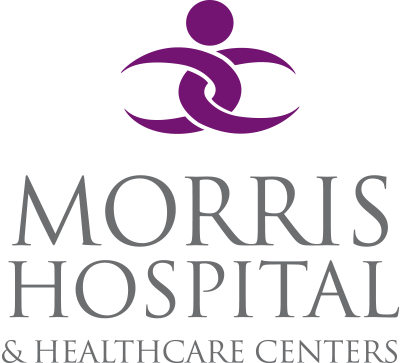 Morris Hospital offers evaluation and treatment of lymphedema through a specialized therapy program. Our team of licensed, experienced professionals provide patients with excellent rehabilitation care close to home. Our therapists will work with you to create a coordinated plan of care with a goal of achieving the best possible outcome.
Morris Hospital offers evaluation and treatment of lymphedema through a specialized therapy program. Our team of licensed, experienced professionals provide patients with excellent rehabilitation care close to home. Our therapists will work with you to create a coordinated plan of care with a goal of achieving the best possible outcome.
Equally important, we provide information, education and support to patients and families dealing with the challenges of living with and successfully managing this condition.
Through the Morris Hospital Lymphedema Therapy program, you will receive education about your condition and learn how to manage it independently. Our program will educate you in areas such as self-massage, exercise, and use of appropriate compression. We will also provide information about community resources and prevention strategies.
We encourage you to bring a family member or friend to your treatment sessions so they can learn about your condition and assist you as needed.
For more information, please call Morris Hospital Rehabilitation Services at 815.942.8301 and ask to speak with one of our Certified Lymphedema Therapists.
WHAT IS LYMPHEDEMA?
Lymphedema is a condition resulting in swelling of the head, arm, leg, and/or trunk caused by disruption of the lymphatic system. It is a chronic, often progressive condition that can result in excessive swelling and places one at risk for cellulitis, a potentially serious bacterial skin infection.
CAUSES OF LYMPHEDEMA
Lymphedema can occur following some surgeries, trauma, disease or radiation therapy that results in damage to the lymphatic system. Occasionally it is due to congenital absence or malformation of the lymphatic system.
CONDITIONS THAT MAY LEAD TO LYMPHEDEMA
Conditions that may result in lymphedema include:
- Cancer or cancer surgery, including lymph node removal
- Cardiac bypass surgery with vein graft harvest
- Venous insufficiency
- Deep vein thrombosis
- Obesity
FIRST SIGNS OF LYMPHEDEMA
First signs of Lymphedema include:
- Heaviness
- Aching
- Burning
- Stiffness
- Tight Jewelry
HOW IS LYMPHEDEMA TREATED?
Lymphedema is most effectively managed with a combination of treatments known collectively as Complete Decongestive Therapy (CDT). Skilled therapists that have completed a 175 hour training course will design an individualized plan that includes aspects of the following treatments:
- Manual lymph drainage (specialized lymphatic massage) to stimulate and redirect lymph flow
- Compression with specialized bandaging, garments and occasionally pumps
- Exercise to assist the muscle pump to move fluid and improve motion and strength
- Skin care to maintain healthy tissue and prevent infection
IS THERE A CURE?
Presently there is no cure for lymphedema. Effective management is possible through clinical treatment, education and individual efforts at home.
